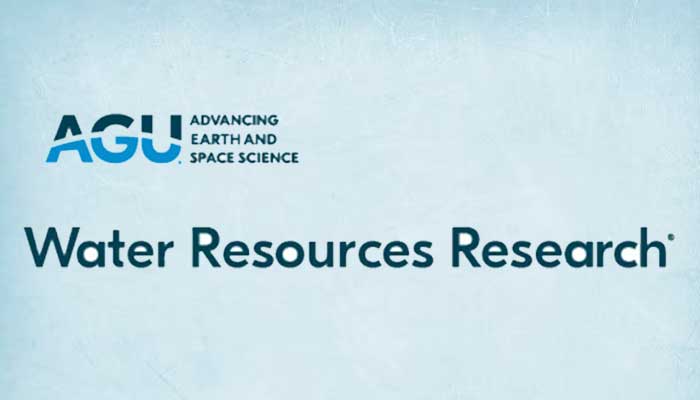Dr. Shaik Rehana and her Ph.D student M Rajesh, Hydroclimatic Research Group, Lab for Spatial Informatics, published a paper on Assessment of Impacts of Climate Change on Indian Riverine Thermal Regimes Using Hybrid Deep Learning Methods in Water Resources Research Journal.
Research work as explained by the authors:
Understanding the riverine thermal regimes is challenging due to sparse spatiotemporal data of River Water Temperatures (RWT). The development of systematic models combined with machine learning models (ML) under data-limited context has not been intensively studied for the prediction of RWT. The present study developed hybrid models using Long Short-Term Memory (LSTM), integrated with (i) k-nearest neighbour (k-NN) bootstrap resampling algorithms (kNN-LSTM) to address the data-limitations of RWT prediction and (ii) discrete wavelet transform (WT) approach (WT-LSTM) to address the time-frequency localised features of RWT prediction. The study assessed the climate change impacts on RWT using an ensemble of National Aeronautics Space Administration (NASA) Earth Exchange Global Daily Downscaled Projections (NEX-GDDP) of air temperature with Representative Concentration Pathways (RCP) scenarios 4.5 and 8.5 for seven major polluted river catchments of India. The hybrid kNN-LSTM has effectively predicted RWT at monthly time scales under data limitations and outperformed the standalone LSTM, WT-LSTM, and hybrid 3-parameter version air2stream models. The RWT increase for Tunga-Bhadra, Musi, Ganga, and Narmada basins are predicted as 3.0, 4.0, 4.6, and 4.7 oC, respectively for 2071-2100.
Read full paper: https://doi.org/10.1029/2021WR031347
Water Resources Research (WRR) is an interdisciplinary journal that focuses on hydrology and water resources. It publishes original research in the natural and social sciences of water. It emphasises the role of water in the Earth system, including physical, chemical, biological, and ecological processes in water resources research and management, including social, policy, and public health implications. It encompasses observational, experimental, theoretical, analytical, numerical, and data-driven approaches that advance the science of water and its management. Submissions are evaluated for their novelty, accuracy, significance, and broader implications of the findings.

